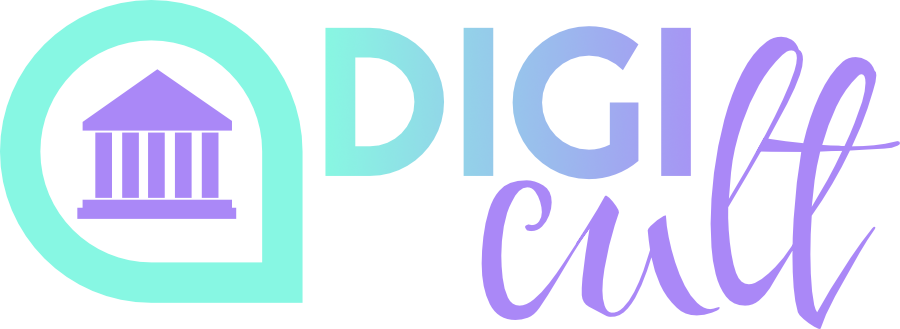Earning, Teaching, Training Activities (LTTA)
| MONTHS | M19 | M20 |
C1- Blended mobility for VET learners |
IT | |
C2- Blended mobility for Vet learners (trainers) (final) |
SE |
DIGICULT will carry out 2 LTTA:
C1 Blended mobility for VET learners
C2 Blended mobility for Vet learners (trainers)
LTTA will be an extraordinary opportunity to create multidisciplinary transnational team groups working on the topic and further exploiting and testing the opportunity to foster national legislation about this topic.
LTTA will be an occasion in which the project partners and participants from different countries will learn together, sharing experiences and difficulties in the specific sector with the aim of identifying common strategies and future partnerships and collaborations.
The added value of this activity will lay as follows:
- to have the possibility of testing on participants the training material. This test will allow, to further supplement and implement outputs;
- to offer the possibility to exchange ideas, to discover cultural heritage sites;
- to understand the potential for using gamification to empower skills;
- last but not least, in the opportunity to measure the efficacy and efficiency of the project’s outputs and also if the website are working and being used by the target group.
LTTA will involve 27 participants. The selection will be done by the sending partner institutions with common selection criterion, which will take into account the need to involve both different staff representatives than VET learners.
Selection will start 2 months prior to each activity in order to guarantee participants involvement considering targets needs and peculiarities.
The selected participants:
- have no obstacle to travel;
- will speak and understand English;
- communicate what they have learned to others upon return;
- agree to engage in the full learning experience and provide feedback;
- sign the learning activity agreement.
Preparation and support – The hosting organization is committed to giving all the possible info to the partners and will deliver in advance:
- the event agenda;
- all the teaching material that will be used in the event;
- a brief description of speakers and their CVs;
- a selection of open access material relevant and/or materials to the learning activity to improve the pre-preparation level;
- information about places to sleep, eat, the transport network and other information that can facilitate the integration and guarantee their well-being.
The hotel, subsistence, flight tickets, and other travel tickets will be booked and paid by the partners and participants will adhere to the rules as laid down for the activity. The safety of participants will be guaranteed by choosing appropriate locations with all environmental standards for learning and teaching, respecting also all existing anti-COVID health and safety regulations. The protection of minors will be guaranteed in accordance with the law in force in the host country.
As there are 6 EU countries involved in the partnership, there will take place an intercultural preparation to better prepare and integrate all participants. This will be done with presentations that highlights the main cultural traits of which country, its organization and customs.
All materials/documents/tools will be used consciously with respect for the environment. All activities will be zero impact and will help to achieve the SDGS -Sustainable Development Goals set by the United Nations 2030 Agenda (Goals 4-5-8-12-17), including green travel.
The experiences will be embedded in public material (interviews, clip, videos, papers,..) released to external on the website.
The validation and formal recognition, in accordance with EU standards, is conducted by all partners. Prior to the mobility period partners discuss and agree the way(s) in which learning outcomes will be assessed during the pilot course (with open access). They also agree on how the quality of this process is ensured. ECVET can be applied, beyond geographical mobility, in the perspective of lifelong learning, helping learners to take their skills along across different learning settings, form non-formal experiences to institutional programs. Main methodological approaches to be applied are European principles and tools for transparency ECVET and Europass, in strictly integration with VET rules and procedures of each involved country; to support the common and transversal competences acquisition in the informal, non-formal, and formal learning contexts taking into account concerned territorial qualification frameworks too.
At the end of each the training activity, an Open Badge is also issued for all participants: a digital certificate to represent and share the skills acquired through an activity or training experience. The badge is issued by CIOFS through a digital platform, C-Box, which allows collecting, in a personal area, objectives, and contents of the training activity, teaching materials, and learning outputs. Participants can decide whether to share their Badge with other people using the platform community and/or other social media that they habitually use (Linkedin, ePortfolio, etc…).
synergies between cultural heritage
and digital education in VET

C1 Blended mobility for VET learners
addressed to learners aged between 14 and 30
(3 participants per foreign country + 5 local participants = 20)
Leading organisation: FAI with the support of CIOFS and TDS
Participating organisations: UNIC, eMundus, NCK, IZTZG, BJC
Country of Venue: Italy
Start – end period: July 2023
Duration: 5 days/40 hours
Duration: 5 days
Learners will carry out benchmarking activities within one or more cultural institutions or scientific and research institutes. This methodology is useful for dealing with change and innovation because it allows learners to handle real cases and successful experiences. Participants will have the opportunity to analyse, compare with their peers, reflect and develop strategic skills for their professional future. It is a lively, participatory learning opportunity.
The C1 activity will aim to:
- deepen and discuss, on the basis of concrete cases, strategies for the fruition of cultural heritage through digital techniques. The learners will have the opportunity to know the potential, in terms of digital development, of the cultural places visited;
- show and discover the attractiveness of hidden cultural heritage, usually inaccessible, which can become accessible to visitors thanks to the use of innovative technologies;
- create an opportunity for cultural, personal, professional growth;
- link together many aspects (cultural, organizational, professional) that are usually considered as separate.
The coordination will be in charge of FAI with the support of CIOFS and TDS – professionals in the cultural and training area – who will be all responsible for the program definition, the selection of cases of interest for the learners, the assistance to the participants during the activity, supporting them in the drafting of the final report.
The scheduled program is the following:
Day 0 Arrival of the learners in Italy. The participants will get to the different locations from Torino, the city where they will stay overnight.
1st day Opening of the mobility at Torino and presentation of the planned activities by FAI.
Presentation of attendees, debate about learning methodology with FAI, CIOFS, TDS.
2nd day Transfer and activities at the Royal Castle of Racconigi and Muses – leaded by TDS
3rd day Transfer and activities at the Castello della Manta – leaded by FAI.
4th day Transfer and activities at the Polo Reale – leaded by FAI.
5th day At CIOFS headquarter: evaluation and validation of the experience by learners. Validation and reporting by FAI.
Day 6 Return home for learners.

C2 Blended mobility for Vet learners (trainers)
addressed to trainers from partner countries (1 participant for foreign Country + 2 participants for IT=7)
Leading organisation: NCK
Participating organisations: CIOFS, TDS, FAI, UNIC, eMundus, IZTZG, BJC
Country of Venue: Sweden
Start – end period: August 2023
Duration: 5 days/40 hours
Arrival of the trainers in Sweden.The C2 activity will aim to:
-
- define and implement an educational strategy on cultural heritage management and enhancement through digital techniques;
- deepen the potential of innovative technologies in increasing attractiveness of cultural heritage and approach a large public;
- discuss and deepen the social and educational value of cultural heritage;
- develop a methodology that involves young people with economic, social and educational difficulties and that is geared to contain “educational dispersion”;
- reflect on the use of distance learning which must maintain the enhancement of the relationship with and between students, the recognition of the class as an educating community, the importance of training feedback that supports the growth processes of each individual student;
- create a fruitful moment for discussion and exchange of good practices;
- improve team working.
The participants will discuss and/or test:
-
- the training methodology defined through the identification of best practices and innovative curriculum and the developed strategy on how to welcome different learners with cultural needs in a digital context;
- synergies between cultural heritage and the news digital era;
- contents and digital educational resources for modules and laboratories;
- potential of innovative technologies in increasing attractiveness of cultural heritage and approach a large public;
- educational value of cultural heritage
The methodology that will be adopted allows the participant to experience a formative moment for a few days in places far from the classic classrooms.
The structure of the mobility will include three fundamental moments, integrated with each other:
-
- the first phase dedicated to confrontation with witnesses of excellence. One or more witnesses will bring case studies and experiences. The suggestions of the witnesses of excellence will be taken up by the participants and freely debated. The rhythm of the classic conference or seminar full of speakers will be avoided and space for reflection will be privileged;
- the second phase will be dedicated to work in small groups. The approach to the work can be developed in two different ways:
– the convergent approach will be used to deepen a theme, with the cooperative learning method;
– a divergent approach will be chosen when the theme must be developed, customized and applied to one’s own operating context.
Starting from the ideas and contents discussed in the first phase, the participants will develop their own elaboration and personalization of the input received; - a third moment will be dedicated to some playful activities connected to the topics addressed during the day. Team building experiences, simulations, outdoor training will be developed.
The C2 activity will be coordinated by NCK and will involve all partner countries.
The scheduled program is the following:
Day 0 Arrival of the trainers in Sweden.
1st day Opening of the mobility at the NCK – presentation of the planned activities by NCK; presentation of attendees; visit to the NCK.
2nd dayAt the NCK: presentation of case studies and experiences; discussion
3rd day At the NCK: work with “peer to peer coaching sessions” between colleagues; outdoor training.
4th day At the NCK: workshop on innovative teaching; playful activities.
5th day At the NCK: evaluation and validation of the experience by trainers. Validation and reporting by NCK.
Day 6 Return home for learners.


